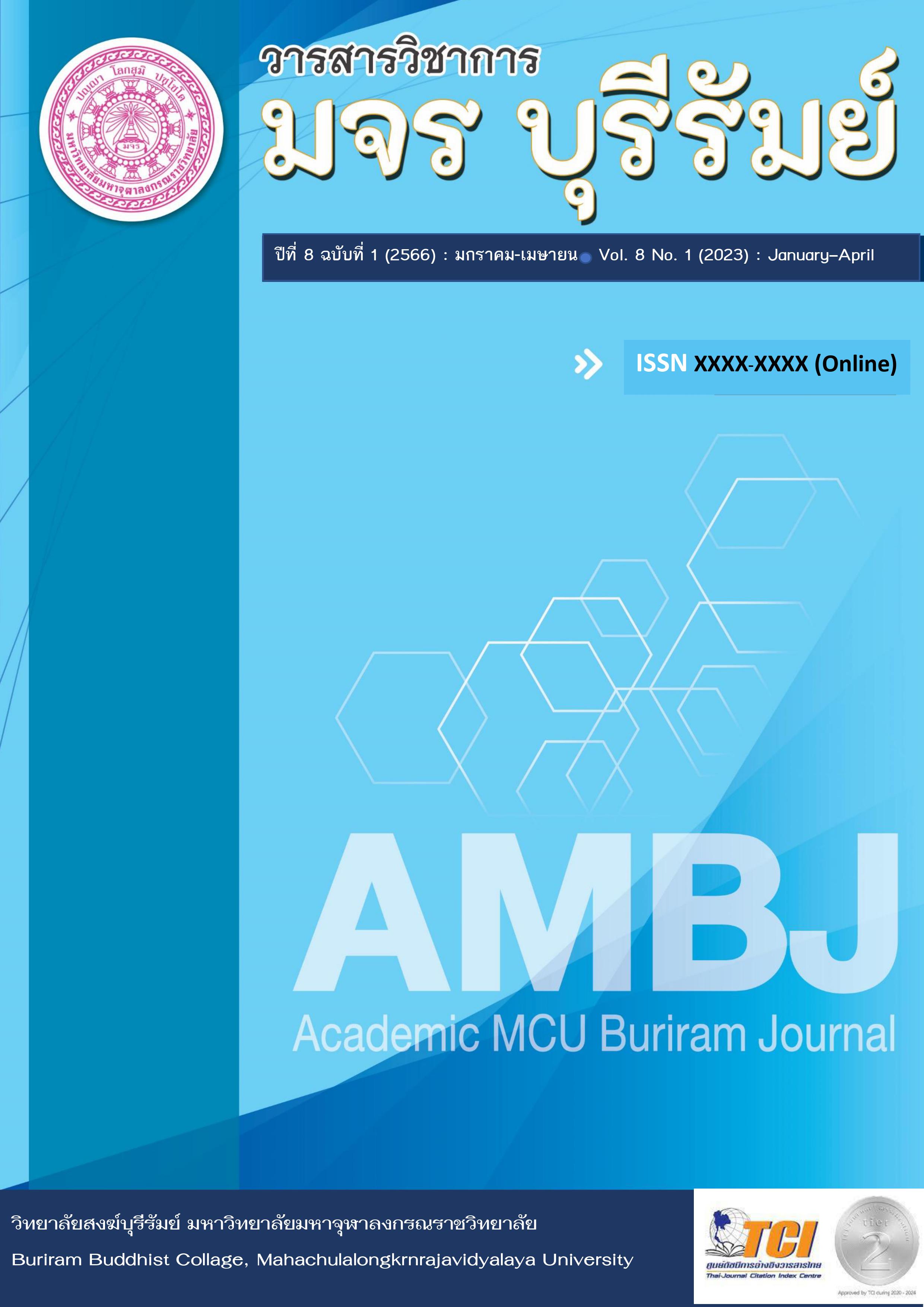A Comparative Study of Epistemology of Samkhya and Theravada Buddhist Philosophy
Keywords:
Epistemology, Samkhya Philosophy, Theravada Buddhist PhilosophyAbstract
The purpose of the research were: 1) to study the epistemology of Samkhya philosophy; 2) to study the epistemology of Theravada Buddhist Philosophy; 3) to comparative study of the Epistemology of Samkhya Philosophy and Theravada Buddhist Philosophy. This is a qualitative research by studying from the Tripitaka, Buddhist scriptures related papers and the research which analyzes the data by analytical methods.
The research result found that:
Theravada Buddhist Philosophy is that the doctrine of epistemology is assuming that the truth is fictitious. The important issues of epistemology are: (1) the scope and source of knowledge; Sutamayapañña is wisdom or knowledge that arises from listening; Jintamayapañña is wisdom or knowledge caused by thought and reasoning and Phawanamayapañña is the wisdom that arises through practice Training and practice of meditation. (2) Nature and characteristics of knowledge; empirical knowledge; or imaginary knowledge is to know things by apprehension through the five senses, which is fictitious knowledge and absolute knowledge or knowledge of the ultimate truth is the knowledge that arises from within the mind and (3) the criteria used to judge knowledge has 3 steps: knowledge arising from relationship with practice, knowledge arising from opposite practices and knowledge that supports the practice.
A comparison of differences and similarities is as follow; 1) There are three scope of knowledge of the Samkhya philosophy: (1) apparition, (2) inference, and (3) retelling of the scriptures. As for the scope of knowledge of Theravada Buddhist philosophy: (1) suppositional truth, (2) supreme truth, (3) paramattha truth, (4) noble truth. 2) The source of knowledge of the philosophy of waste-scattering is (1) apparent approximately, (2) roughly inferred, (3) roughly, as for the source of knowledge of Theravada Buddhist philosophy, there are three differences, namely (1) Suttamayapañña is wisdom or knowledge that arises through hearing (2) Jintamayapañña is wisdom or knowledge that arises from thought (3) Bhavanamayapañña is wisdom that arises through practice. 3) Nature and characteristics of knowledge in the philosophy of Samkhya, there are 3 types: (1) empirical knowledge; is the knowledge that we perceive directly sensory knowledge (2) knowledge from inference is the knowledge of things that have not yet been manifested through what has already been manifested; (3) knowledge of retelling is the knowledge of hearsay from a trusted person. As for Theravada Buddhist philosophy, there are two types of knowledge: (1) empirical knowledge; or fictitious knowledge; or paramatthasaccha knowledge; 4) there are three criteria used in judging knowledge intuitive Knowledge of the trash-sweeping philosophy: (1) Pramata; the knowledgeable, (2) Prameya; the perceived mood, (3) Prammana; approximation source of knowledge as for Theravada Buddhist philosophy, Ten beliefs are used as criteria for determining knowledge.
References
นงเยาว์ ชาญณรงค์. (2542). ปรัชญาอินเดีย. พิมพ์ครั้งที่ 2. กรุงเทพมหานคร: สำนักพิมพ์มหาวิทยาลัยรามคำแหง,.
บุญมี แท่นแก้ว. (2541). ปรัชญา. พิมพ์ครั้งที่ 3. กรุงเทพมหานคร: สำนักพิมพ์โอเดียนสโตร์.
ประยงค์ แสนบุราณ. (2547). ปรัชญาอินเดีย. กรุงเทพมหานคร: สำนักพิมพ์โอเดียนสโตร์.
มหาจุฬาลงกรณราชวิทยาลัย. (2535). พระไตรปิฎกภาษาบาลี ฉบับมหาจุฬาเตปิกํ 2500. กรุงเทพมหานคร: โรงพิมพ์มหาจุฬาลงกรณมหาวิทยาลัย.
มหาจุฬาลงกรณราชวิทยาลัย. (2539). พระไตรปิฎกภาษาไทย ฉบับมหาจุฬาลงกรณราชวิทยาลัย. กรุงเทพมหานคร: โรงพิมพ์มหาจุฬาลงกรณราชวิทยาลัย.
สุนทร ณ รังษี. (2545). ปรัชญาอินเดียประวัติและลัทธิ. พิมพ์ครั้งที่ 3. กรุงเทพมหานคร: สำนักพิมพ์แห่งจุฬาลงกรณ์มหาวิทยาลัย.
Downloads
Published
How to Cite
Issue
Section
License
Copyright (c) 2023 Academic MCU Buriram Journal

This work is licensed under a Creative Commons Attribution-NonCommercial-NoDerivatives 4.0 International License.
ทัศนะและความคิดเห็นที่ปรากฏในบทความวารสารฉบับนี้ถือเป็นความรับผิดชอบของผู้เขียนบทความนั้น ไม่ถือเป็นทัศนะและความรับผิดชอบของบรรณาธิการ





